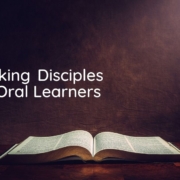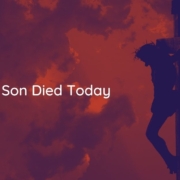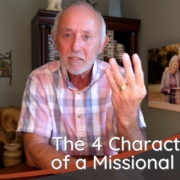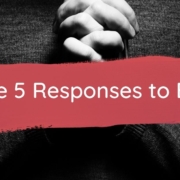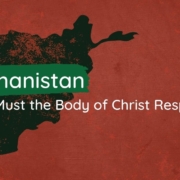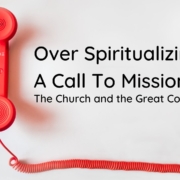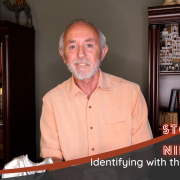2020-2021 have not been my favorite years. Due to health issues and other reasons, we’ve had to return to America and settle in a country that has not been our home for over 35 years. Over these decades we’ve moved 28 times, immersed in languages that include Chewa, Xhosa, Swahili, Somali, while dabbling in Amharic and Arabic. What a shock that a country boy to have visited 80 countries! We’ve owned, in those 35 years, one used car. Our three sons were wondrous partners and have said to me, “Daddy, we’ve had the greatest lives that any kid could ever have.” In the core of our being we believe that God made us to live and serve in an overseas environment.
Returning from living overseas after almost four decades, being introduced for the first time to a house mortgage and insurance, buying two vehicles and insurance, local, state, and federal taxes have caught me by surprise. It’s been the hardest adjustment in my life. Political realities and pandemic have added to my culture shock.
I’ve promised God that I’ll do better, honoring His investment in us, putting into practice in the U.S. much that He’s taught us, especially through believers and His church in persecution. As an example, let me describe the environment which believers in East Asia live out their faith. When we first began to visit these believers we experience;
… When a woman became biologically able to bear children she was required by her government to have a pregnancy test monthly. If it was discovered that she was pregnant, without approval from the government, she was forced to abort the child immediately.
… If a woman wanted to travel from one province to another she was required to undergo another, more expensive pregnancy test to prove that she was not sneaking off to a place where she was not known, attempting to give birth illegally. If it was discovered that she was pregnant without approval from the government, she was forced to abort the child immediately.
… While in the equivalent of our high schools, one took aptitude tests through which the government would decide whether you went to university or technical school.
… Once in the assigned technical school or university it was decided by government officials, and further tests, what your major would be.
… Upon finishing technical school or university you were assigned where you would live and work, given your apartment, with your electricity and water provided by the government. You salary and benefits were not negotiable.
… Deciding to marry, a couple had to receive permission from their work supervisor before informing their parents.
… They could apply for permission from the government to have one (1) child. Their names were put on the list and they would have to wait their turn for permission to conceive and deliver a child.
… Failure to adhere to these rules could cost one the ability to work, their place of residence, and could lead to serious fines and/or imprisonment.
Therefore it should not surprise us that their government is seriously opposed to citizens following Jesus or adhering to any form of religious faith. It was heartbreaking to learn, when we first visited, that 40% of the leaders within the Christian faith were incarcerated in prison for three years. Surprisingly, the government was not necessarily opposed to Jesus. What they were opposed to was your freedom to choose your God. Their thinking was/is, that if you are free to choose your God, then by implication you are free to choose everything else; what school to go to, your major, where you want to live, what job to aspire, who you marry, and how many kids you choose to have.
Given the truth of all the limits placed upon human life in East Asia one could be forgiven for assuming that following Jesus and gathering as His Body is all but impossible. In 1948/49 communists within this East Asian country sought to annihilate Christianity. There were approximately 400,000 Christians in East Asia within this period of history. They burned churches, turned them into beer halls and brothels. The government martyred pastors and missionaries. It was obvious that the government would not be content until the last church was destroyed and the last follower of Jesus eliminated. I remember reading an article in 1984, that questioned, as this country seem to be opening up, would there be any Christians left alive inside of this country?
As minimum travel was allowed around this time it was discovered that the 400,000 followers of Jesus now numbered 10 million! After our last visit inside this country, conservative estimates are that Christians, gathered mostly in house churches of 30 or less, number, conservatively, around 85 million souls!
Friends, believers in Jesus the Christ, Americans. Hear the words of the Lord. The setting described above is much like the New Testament setting in which Jesus was born, lived, was crucified, and rose from the grave. It would be different, nuanced – but the setting described in East Asia would be familiar to Jewish and Gentile believers found in the New Testament. Occupied by the Roman Empire, while one had to pay taxes and be counted in a census, they could choose their government, serve in the police force or the military- let alone be protected by them. They could not vote or belong to a political party. They lived under Roman Law. Roman Law not only took away one’s ability to choose it could also travel to a small village called Bethlehem and murder all the male children under three years of age. The parents of these children had no recourse. They could not hire a lawyer and take these murderers to court. Their ability to choose the right to be human within their culture and government was severely hindered – almost nonexistent.
But they could choose to follow Jesus – and they did in their thousands. They were scattered throughout the known world. Yet they still chose to share their faith. Often the cost was great. They could choose to be like their Jesus. Galatians 5:22 described them and should describe us. “But the fruit of the Spirit is love, joy, peace, forbearance, kindness, goodness, faithfulness, gentleness, and self-control. Against such things there is no law.” There’s another list in Galatians 5:19-21. It’s not a list of deeds, it’s also a list that defines your essence, who you are. It’s not a list you want to be on.
Honestly, we’re on one list or the other. It’s our choice.
This is my prayer for us in this New Year. May 2022 find us, who call ourselves Christians, people defined by our love for God and for one another. This is preferable than being consumed by politics or political parties; race and ethnicity. Sure, good government is important. Good governments can bring people together. But government alliances should not, and must not, distract God’s people from hungering for the One Whom we can never deserve. My unsettledness in returning to America isn’t due to taxes, a mortgage or political divisions. My discontent is failing to focus on Jesus, staying in His Word, and talking about Him. It’s in Him that true freedom, eternal freedom, is to be found.
I titled this article, “Defined by What?” That was a mistake. I should’ve entitled this article “Defined by WHO?” Isn’t that more the issue as we embrace 2022?
To love. To forgive. To trade anger for peace. To choose joy. To be like Jesus.

